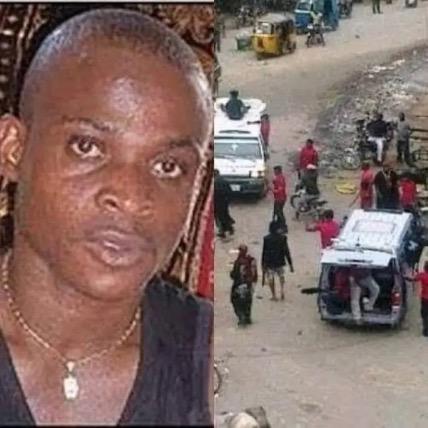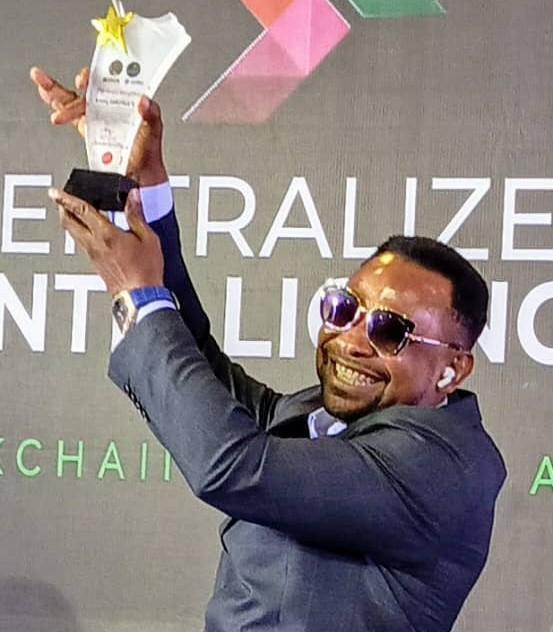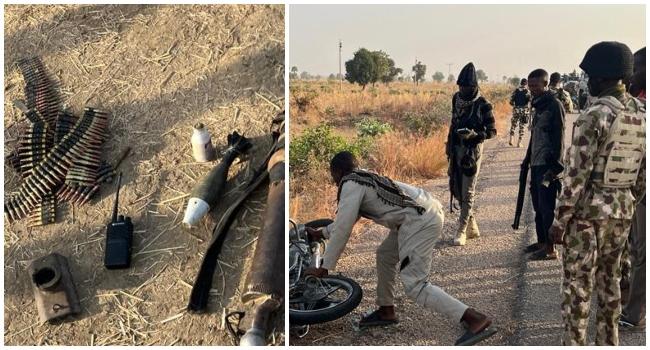The Story of Derico Nwamama: The Dreaded King of Crime and His Fall at the Hands of the Bakassi Boys

In the late 1990s and early 2000s, southeastern Nigeria trembled under the reign of a young but terrifying criminal mastermind—Okwudili Ndiwe, infamously known as Derico Nwamama. Born and raised in Onitsha, Anambra State, Derico’s descent into crime began like many urban tragedies: with petty theft. From pickpocketing on the crowded streets of Onitsha, he evolved into one of the most feared armed robbers the region had ever known—his name enough to send shivers down the spine of both civilians and law enforcement alike.
Derico’s rise to infamy began after he brutally murdered Chiejina, another notorious gangster who once dominated the eastern underworld. With Chiejina gone, Derico seized the vacuum of power and established himself as the undisputed crime lord of the region. He operated mainly from Abuja, where he lived lavishly and surrounded himself with protection, but he would often return to the east—to Onitsha, Aguleri, and Umuleri—to unleash terror and violence.
Using his deep connections and cunning, Derico orchestrated daring bank robberies, intercepted luxury interstate buses, and executed countless killings. He had hideouts scattered across Anambra and Delta States, especially in Agbor, where he was said to commune with native doctors and fortify himself with powerful charms. Believing himself invincible, Derico often boasted that “no man born of a woman” could harm him. His confidence grew with every successful heist, and soon, he was sending letters to the police, mocking them for killing his men and daring them to catch him if they could.
But his crimes reached a horrifying climax in December 2000, when he and his gang ambushed a 59-seater luxury bus traveling from Lagos at the infamous Upper Iweka area of Onitsha. After robbing every passenger, Derico ordered the cold-blooded execution of nearly everyone on board—only four survived to tell the tale. That massacre marked a turning point; Anambra State had had enough.
Governor Chinwoke Mbadinuju (Odera), then at the helm of Anambra’s government, faced public outrage. The police, despite launching “Operation Derico” in May 2001, failed to apprehend the elusive criminal. Derico’s networks, his mobility between states, and his claimed supernatural protection made him almost impossible to pin down. Even when the police captured some of his men—among them, his trusted bike driver, Amobi—Derico continued to strike fearlessly, robbing, killing, and kidnapping for ransom.
In desperation, Governor Mbadinuju turned to a feared local vigilante force: the Bakassi Boys. Originating from Abia State, these men were renowned for their ruthlessness, mystical powers, and swift justice. To many residents, they were both judge and executioner—a necessary evil in a time of lawlessness.
In June 2001, Derico escalated his madness further by attacking a police station to seize weapons for a planned bank robbery in Asaba. But his arrogance was his undoing. The police, working with the Bakassi Boys, tracked his movements and stormed his Abuja residence. Though Derico escaped that night, two of his close allies were killed. With his strongholds compromised and his luck waning, Derico began to live like a fugitive—moving secretly between towns and depending on whispers of loyalty that were fading fast.
It was during one of these journeys, in early July 2001, that fate finally caught up with him. Acting on a precise intelligence tip, the Bakassi Boys mounted an ambush at the Head Bridge, the gateway into Onitsha. On Tuesday, July 3, 2001, Derico was identified in a commercial bus and captured without warning. His arrest sparked an explosion of jubilation across Onitsha. The monster who had haunted their nights was finally in chains.
The Nigerian Police requested custody of Derico for formal investigation and trial, but the Bakassi Boys refused. They had seen too many criminals walk free from the system, and they vowed that Derico would not escape justice through legal loopholes.
Six days later, on Monday, July 9, 2001, the Bakassi Boys paraded their “Big Meat” through the streets of Onitsha in an open convoy. Crowds flooded the roads, singing, dancing, and cheering. The procession ended at Ọchanja Market Junction, not far from the infamous Upper Iweka—the very place Derico had committed one of his most horrifying crimes. There, they brought him before the people he had tormented for years.
Visibly terrified, Derico was handed a microphone and asked to speak. His voice trembled as he said,
“My name is Ody, alias Derico Nwamama. Ndi Anambra, please don’t kill me. It’s true—I have killed many, but please, don’t kill me. I don’t like evil anymore. I will repent. It was when I killed Chiejina that people started to think I was strong. I trust the Bakassi Boys—they are powerful. Please, have mercy.”
His pleas fell on deaf ears. What came next was swift and brutal. A Bakassi executioner lifted his cutlass high, and with a single, devastating stroke, Derico Nwamama was beheaded. The crowd erupted in thunderous approval. His remains were hacked apart and burned on the spot—a gruesome end to a man who had ruled by fear.
The fall of Derico became the stuff of legend in southeastern Nigeria. It marked not just the end of one man’s reign of terror but also the peak of the Bakassi Boys’ vigilante justice. His story was later immortalized in a Nollywood film titled “Derico”, a grim reminder of the chaos, fear, and raw justice that defined that era.
From a small-time pickpocket to a symbol of terror, and finally, to ashes on the streets of Onitsha—the story of Derico Nwamama remains one of Nigeria’s most chilling tales of crime, power, and retribution.








